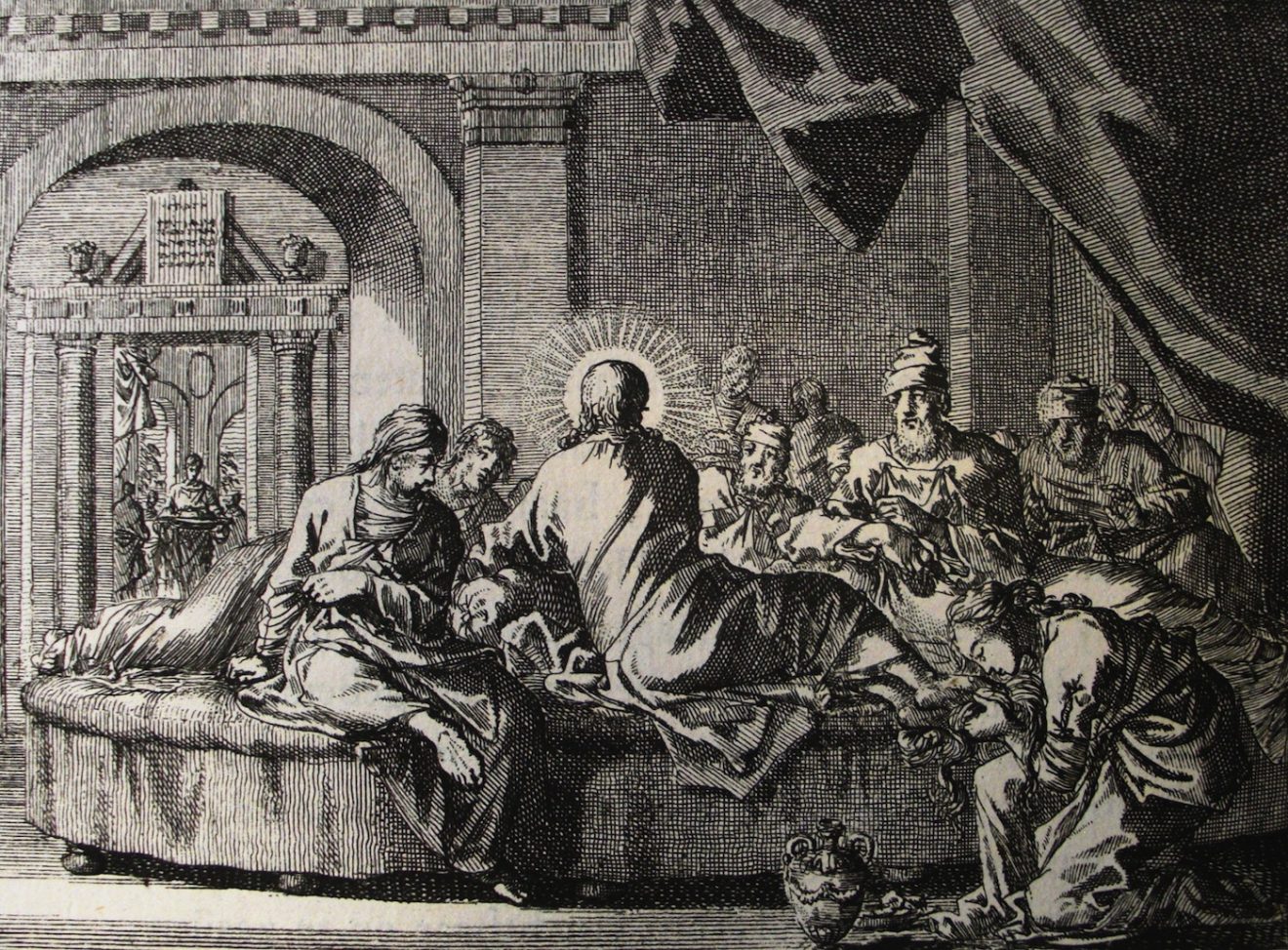The world out there is very generous and “easy” in extolling people but also quick in knocking them down. Our God is quite different. Consider the following two sentences:
- Jesus answered him, “Why do you call me good? No one is good but God alone.” (Mark 10:18)
- “All have gone astray; all alike are perverse. Not one does what is right, not even one.” (Psalm 14:3)
This explains why all saints, without exception, were deeply convinced of this and considered themselves the worst possible sinners. They had gone so close to God, who is Light (1 John 1:5) that their faults gave them no choice but to throw themselves completely at His mercy. However, far from considering ourselves the worst sinners out there, we would be troubled if people found fault with us and we would be upset if our efforts to cover up our flaws were not good enough to fend off reproach or at least allow us to fool ourselves with thinking that people still have a good opinion of us.
No one is good but God alone…. Not one does what is right, not even one….
Now, there are basically two ways we can live our life: pretending to be good in God’s eyes and that people have a good opinion of us. However, we accomplish both of these by shrinking our errors and sins to the point of erasing them altogether with the passing of time or by diminishing the value of Jesus’ Blood on the cross. Psalm 51 states the stark reality that sets us aright: my sin is before me always. But, chances are that our gaze and scrutiny are set outwardly instead of inwardly. We do not know how blind we truly are to our flaws. There is a self-defense mechanism set in place which allows us to live, from day to day, under the blessed illusion of being good, decent, or even outstanding people while ignoring completely our dark side. If we were truly and overtly rotten people, we would not be able to fool ourselves and continue in our attempt at fooling others. But, most likely, we are close to being or truly are “decent” people who can pass for good people in the eyes of those who know us superficially.
The question now becomes this: is our loving Lord allowing us to live with this blindness, with this delusion of goodness? Here is a startling revelation: the Lord has been trying to open our eyes to the stark and embarrassing reality of our spiritual condition through … are you ready? Through distractions in prayer!
Truth be told, whenever we act as prayerful believers our mind gets flooded by a relentless stream of distractions. But we can go on “praying” without realizing that we are distracted. When we become aware of the distraction, we attempt to go back to our prayer yet, in matter of seconds, the same distraction surfaces again. What we should do is analyze those distractions in the light of the Holy Spirit and in complete humility. We would find a recurring issue: all of them have something to do, directly or indirectly, with our ego, with preservation of the best possible image of our self!
Distractions point in the direction of our attempts at improving on the impression we left on someone important; or they expose our efforts on how to impress someone; or they offer us suggestions on how we can patch up our self-image after it took an embarrassing hit. For as long as we are not aware first and, then, not owing up to our flaws, sins and mistakes, we will continue to waste a lot of energies covering up, giving a favorable spin to a humbling situation or worrying about our reputation. Or we might opt for sealing off our shortcomings so as to focus on the obvious flaws of others.
Prior to what the prophet Nathan (2 Samuel 12:7-10, 13) is recorded as saying here, he was telling King David the story of a rich man with a huge flock of sheep who stole the lone sheep an old man had and served it as dinner to a guest instead of taking one of the hundreds that he had. King David reacted the way we might react whenever we do not heed our distractions: he grew furious at that blatant injustice and declared that the rich man deserved death, without realizing that he was condemning himself for what he had done to Uriah.
Simon, the Pharisee (Luke 7:36-8:3), is even more advanced in sealing off his misdeeds. He has quickly dismissed his lack of love and care, actually, his lack of common courtesy, to Jesus so that he can focus on the obvious flaws of that woman weeping at the feet of his illustrious guest. By now he considers himself a “prophet,” that is a better reader of people’s character than Jesus. He feels that he is entitled to divide people into categories, judge them, condemn them and… despise them.
No one is good but God alone. Hence, let us face it: before God there are good actors, there are good Pharisees, there are good hypocrites, but not good people. The lesson is painful and mercilessly clear: if the number of people we despise, we try to control, we criticize, judge and condemn is growing, chances are that we owe God a larger debt of gratitude because, like King David, we have received more than those wretched people whom we look down upon. Furthermore, we do not realize that we would be guilty of the ongoing sin of usurping God’s prerogative of reading people’s hearts and, consequently, guilty of the sin of presumption for judging and condemning them nonetheless.
The other way we can delude ourselves into thinking that we are good people in the sight of God is by assigning a high but not infinite value to the Blood of Christ. Intellectually, we say that Jesus’ Blood is of infinite value, but the eagerness, the precision, the scrupulosity with which we practice our religion while keeping a close lid on our flaws indicate that not only we think we are doing something pleasing to God and meritorious but also that we have succeeded in appearing better than we actually are…
At a gut level we might continue to do all this hoping that people might take notice of our goodness and, most importantly, we might become convinced that we have a better chance of securing favors from God than those “other wretched, clueless people out there.” What a contrast that would create with the courageous woman of the gospel! She faces reproach, ostracism, disdain in order to be totally free to nail to the cross of Jesus all her sins and throw herself in His most merciful arms. What a contrast also with what Paul writes about his experience. “by the works of the law no one will be justified.” (Galatians 2:16)
Let me translate that into plain English: All the good stuff that we do, allegedly for God and for His Church, no matter how big that pile might be, it amounts to nothing vis-à-vis Jesus’ Blood. “I live by faith in the Son of God who has loved me and given Himself up for me.”
Practically, all our distractions are invitations to nail to the cross every single one of our sins which, for good measure, must include those we have buried from our consciousness, and surrender our will and our future to Jesus Christ who loves us, died for us and, most importantly, rose to prove to each one of us that, in our human misery we are bound to rely on the mercy of the Lord rather than on our spotty, lackluster performance. Deeply convinced of our abysmal poverty we would then, throw ourselves trustingly into the merciful arms of our Lord. That would be for us the first day of freedom and the day in which truth triumphs.








